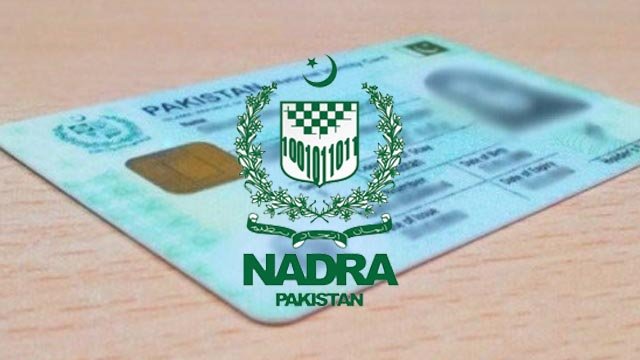The National Database and Registration Authority (NADRA) has blocked 71,459 Computerised National Identity Cards (CNICs) across Pakistan in the past five years, as per local media reports.
According to the reports, Khyber-Pakhtunkhwa (KP) reported the highest number of blocked CNICs at 25,981, followed by Balochistan with 20,583, while in Punjab at least 13,564 cards were blocked, while Sindh had the lowest count with 9,677.
Additionally, Islamabad accounted for 1,370 blocked CNICs, Gilgit-Baltistan for 228, and Azad Jammu and Kashmir for 446.
Out of the total blocked CNICs, NADRA verified and restored 44,460 cards, while investigations into 13,618 cases remain underway.
Sindh government has called for amendments to the Citizenship Act, citing challenges faced by citizens during the verification process.
This move underscores the need for legal clarity and streamlined procedures to address the issues surrounding blocked CNICs.
Earlier to this, a total of 86,000 SIMs involved in anti-state activities have been blocked, Sajid Mehdi the Parliamentary Secretary told the National Assembly on Wednesday.
As per media reports, Mehdi – while responding to a call-to-attention notice by Asiya Naz Tanoli – admitted that the Government of Pakistan had blocked the social media platform X (formerly Twitter) which according to him was a move to curb the misinformation.
Mehdi further confirmed that VPNs have also been banned to control the flow of misinformation.
During his response, the Parliamentary Secretary also disclosed that at least 86,000 SIMs that have been found involved in anti-state activities have been blocked by the authorities.
He told the NA house that the changes in the Electronic Crimes Act are anticipated soon to beef up the regulations against fake news.
“Under the directives of Prime Minister, a task force has been established to tackle fake news, meanwhile, awareness campaigns are being underway in universities, colleges and schools,” he added.
Mehdi highlighted Pakistan’s approach to tackling fake news, contrasting it with international practices, stating, “Globally, fake news is not given as much importance, and there is greater freedom of expression.”
Despite the challenges, the parliamentary secretary stressed the government’s commitment to mitigating the impact of fake news.
It is worth noting here that the Federal Investigation Agency (FIA) Cybercrime Wing has been officially granted authority to take action against social media crimes.
Source: The Express Tribune


